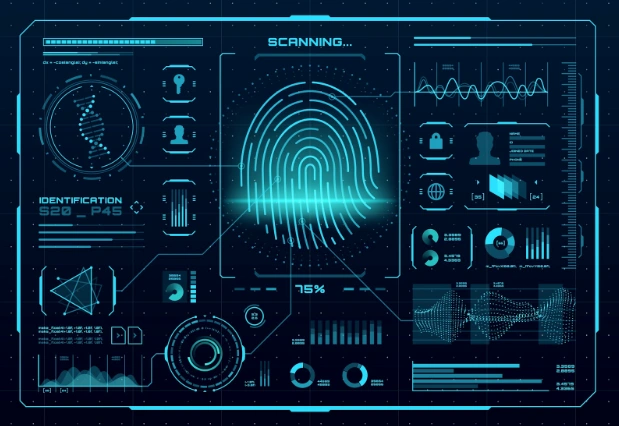
Decentralized Identifiers, or DIDs, are user-controlled identifiers that let people share only the necessary information rather than all their personal data. Users can make claims about their identity without including sensitive information.
Privacy risks, inefficiencies, security breaches, and user dissatisfaction are only some of the pitfalls of traditional Know Your Customer (KYC) procedures, which involve manual, extensively time-consuming tasks. What’s more, these verification processes are notably costly, posing serious challenges for businesses operating on thinner margins.
Users tend to abandon financial applications, with repetitive verification procedures being a common reason. Each interaction with a new platform may subject the user to the full procedure from the beginning, leading to lost business opportunities.
Blockchain provides a potential solution to privacy and other issues associated with traditional verification methods. The decentralized identity system tested by Flare and Red Date Technology is a step in this direction. It enabled 200 visitors from mainland China to anonymously register for regulated stablecoin apps in Hong Kong while complying with very strict verification requirements. The system verified their identities by connecting to the Chinese RealDID platform, and no personal information was revealed during the process. Users were also able to pay for tokenized financial products in HKDA, a stablecoin pegged to the Hong Kong dollar. The trial of the new system by Flare and Red Date represents a successful attempt to blend compliance with privacy.
Decentralized Identifiers, or DIDs, are user-controlled identifiers that let people share only the necessary information rather than all their personal data. Users can make claims about their identity without including sensitive information.
Zero-knowledge proofs prove identity without disclosing details
80% of financial service businesses have experienced a breach associated with authentication vulnerabilities. Each authentication-related breach incurred damages of $2.19 million on average. ID verification also depends on how reliable and accurate the identity documents used are.
Blockchain technology provides hope in that it can verify identity while keeping personal data anonymous. It achieves this through Zero-Knowledge Proofs, a cryptographic tool that enables one party to prove knowledge of specific information. In the context of blockchain, ZKPs allow users to confirm their identity or eligibility without disclosing actual personal details. Privacy-focused blockchains frequently use them to verify transactions or access.
Holonym, a technology platform enhancing digital interaction security, leverages ZK identity proof to eliminate bots and perform digital voting, Sybil resistance, and airdrops. The creation of Human Keys is at the core of its solution. Human Keys lets users interact with any blockchain or cryptographic protocol and prove aspects of their identity or other characteristics without revealing private data. Silk, Holonym’s 2PC wallet, can alleviate UX and security issues by letting people use Human Keys with any application. The tech aims to avert blind signing attacks. Holonym’s Mishti Network eliminates the need for centralized intermediaries who access private keys or other information.
Blockchain prevents AI attacks on verification systems
Another advantage of blockchain tools that verify ID while keeping personal data private involves keeping AI tools from compromising verification. Traditional verification systems often store personal data in centralized databases, which AI-based attacks can target to breach and exploit. Blockchain operates on a decentralized network where data is not stored in a single location. This makes it harder for AI algorithms to gather and attack large amounts of data, limiting the scale of potential data leaks.
Information that is verified and recorded on the ledger cannot be altered. This transparency and permanence make it nearly impossible for AI-driven spoofing or alteration to change verification records. If an AI tool tries to manipulate an identity claim, the blockchain’s unalterable record can serve as proof against such tampering.
AI tools are excellent at recognizing patterns in large datasets, but blockchain’s anonymity measures, like one-time keys, make it much harder for AI to trace users or identify behavioral patterns. Even if AI tries correlating transactions, these cryptographic protections break the data trail, rendering pattern recognition ineffective.
The privacy risks associated with biometrics or scanned documents, which traditional ID systems rely on, are eradicated by cryptographic blockchain verification. The user’s private key is a secure “password” only they hold. AI tools designed to replicate biometrics or forge documents have no way to manipulate or access this private key, protecting blockchain identities from being compromised through AI-based spoofing.
Blockchain technology is transforming identity verification by doing away with the need for personal data exposure, offering a secure solution that prioritizes privacy. Blockchain enables ID verification through cryptographic tools, decentralized identifiers, and zero-knowledge proofs without risking user data. As digital security threats become more prominent and AI-driven exploitation of traditional ID systems gets more sophisticated, blockchain can provide a viable alternative that protects privacy while maintaining trust.
